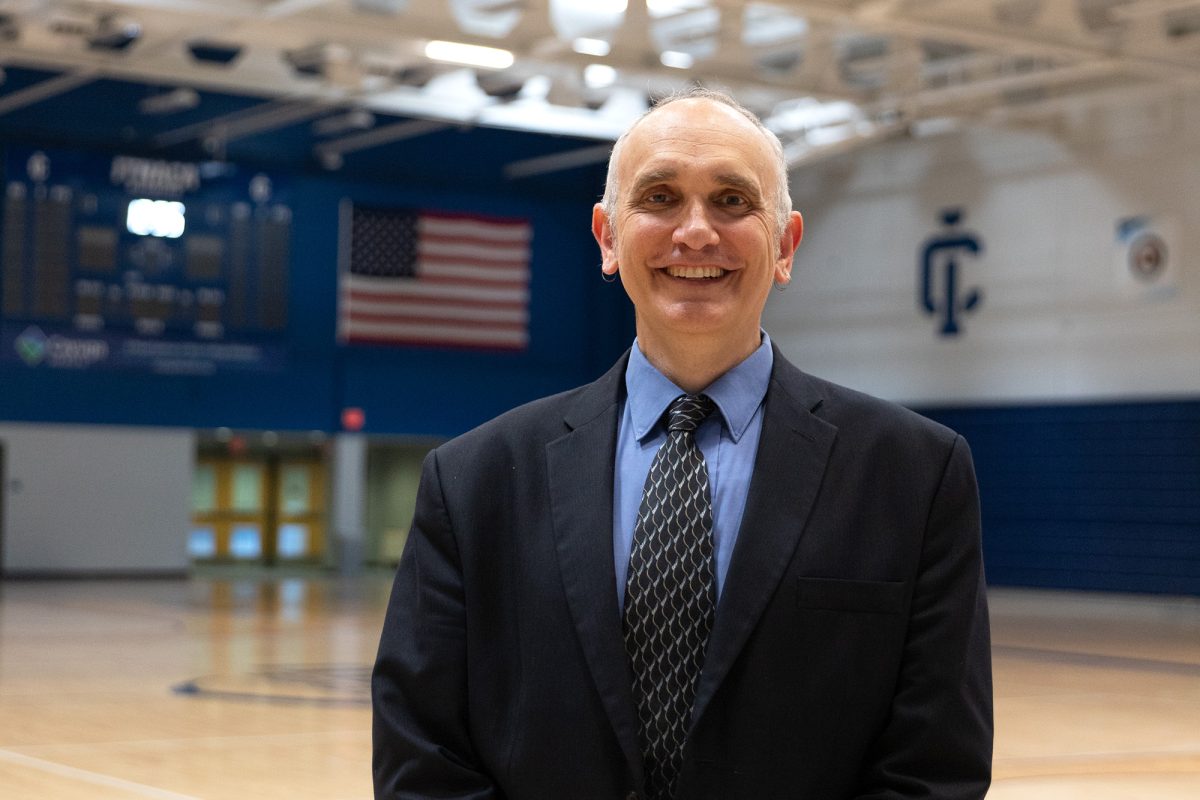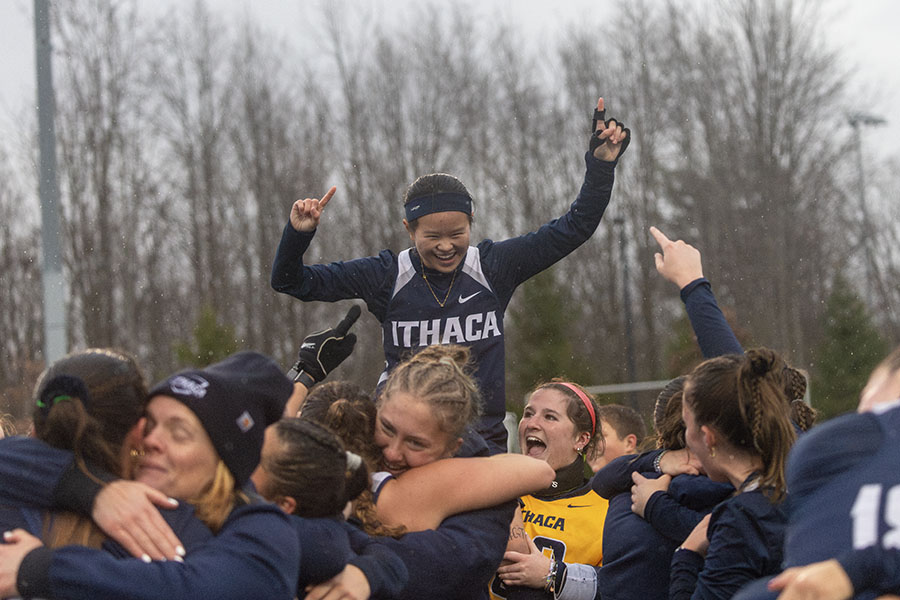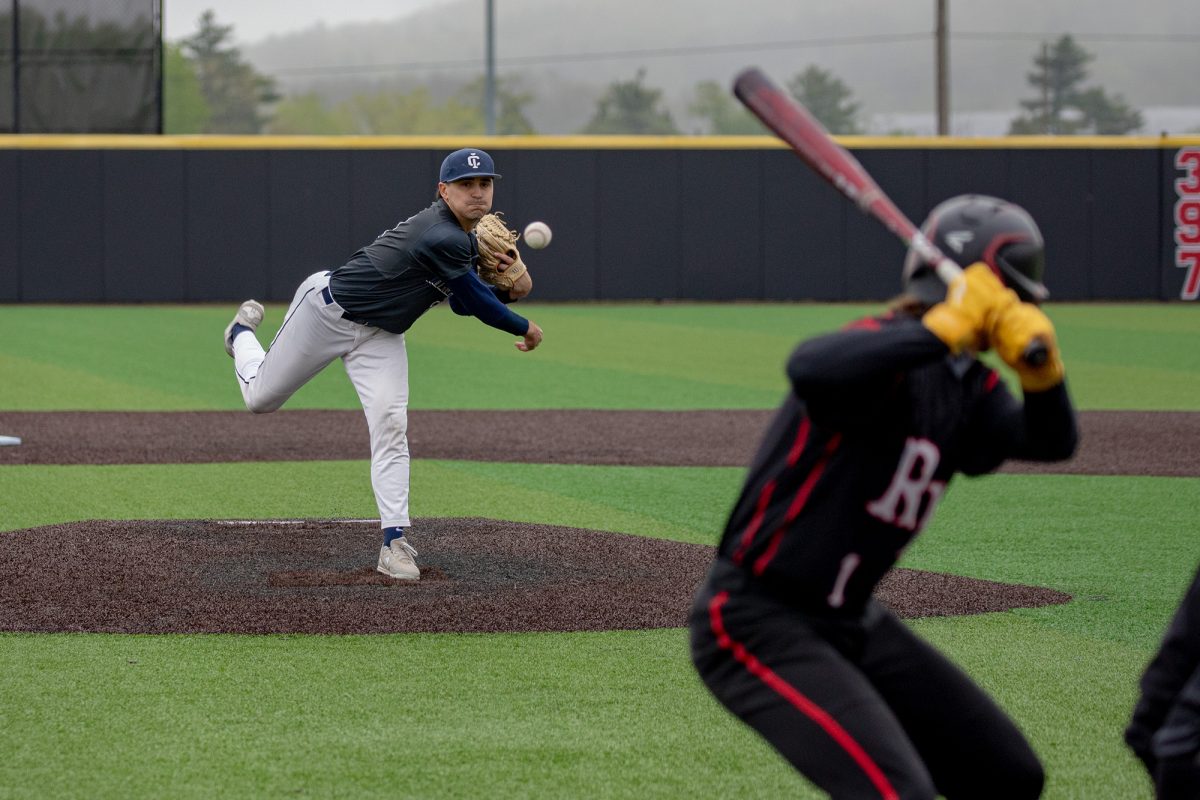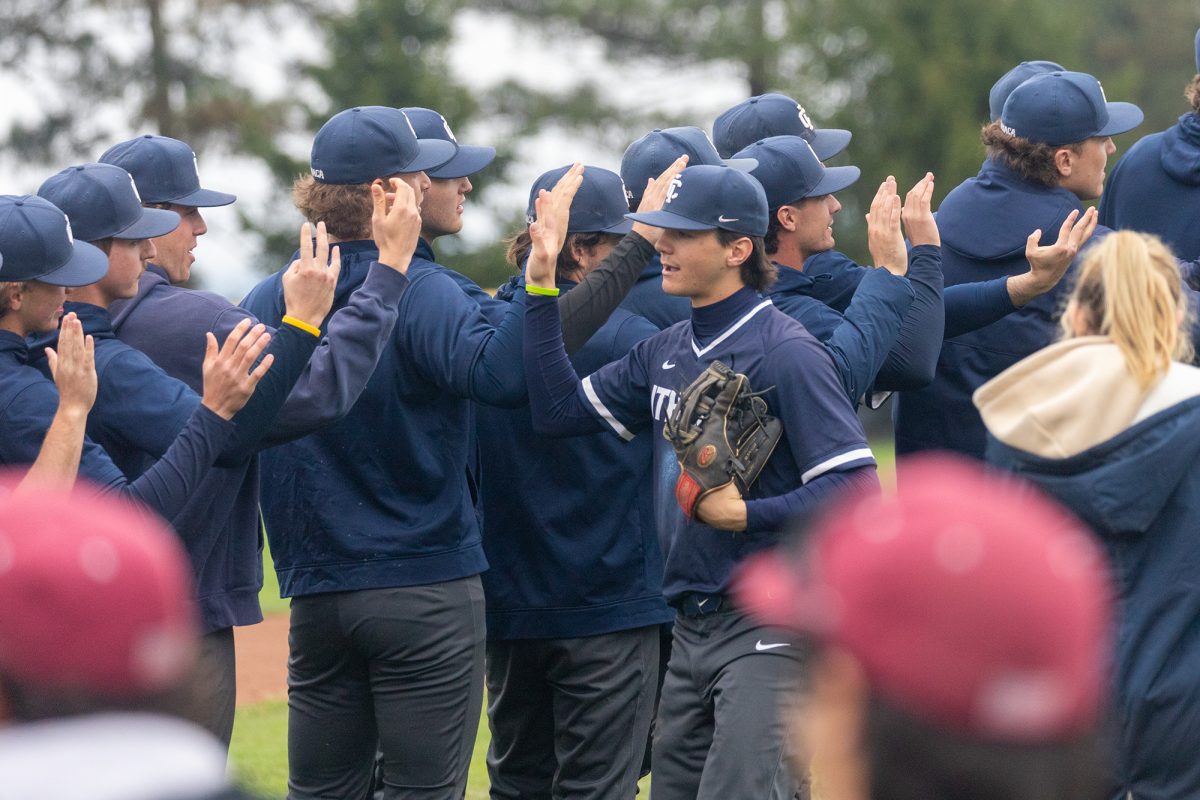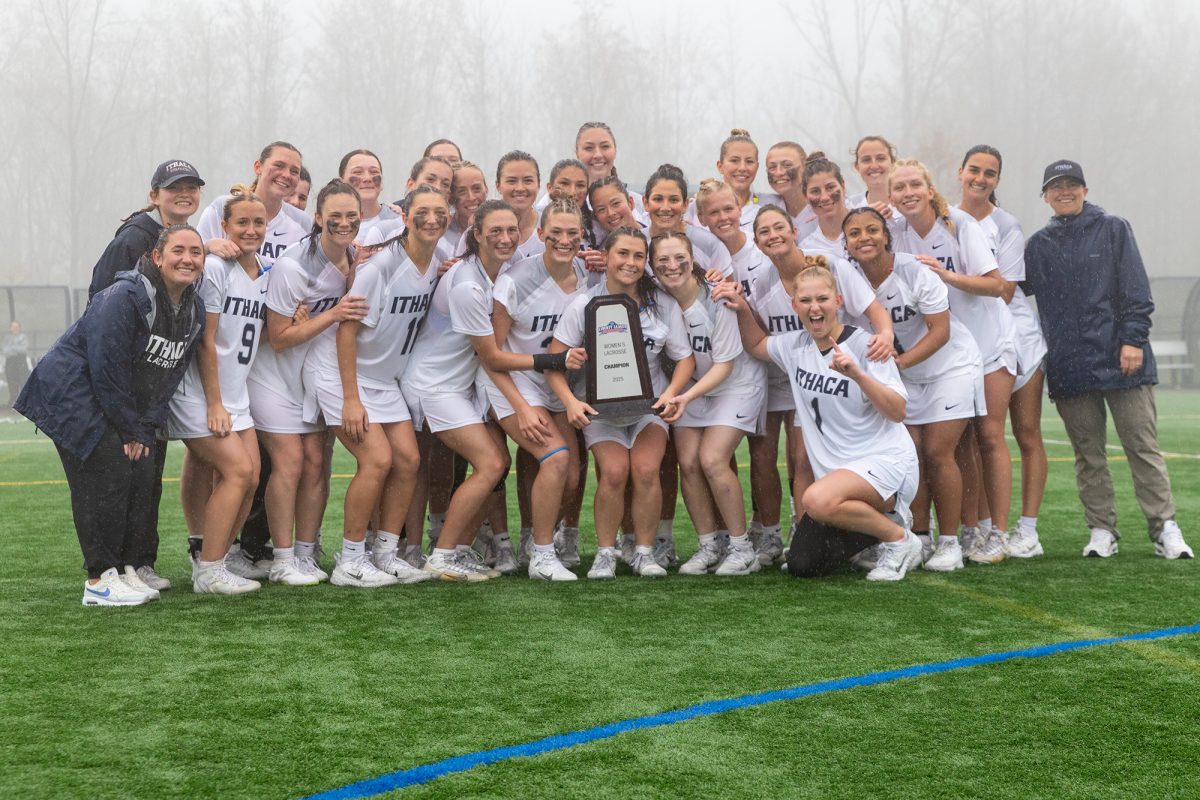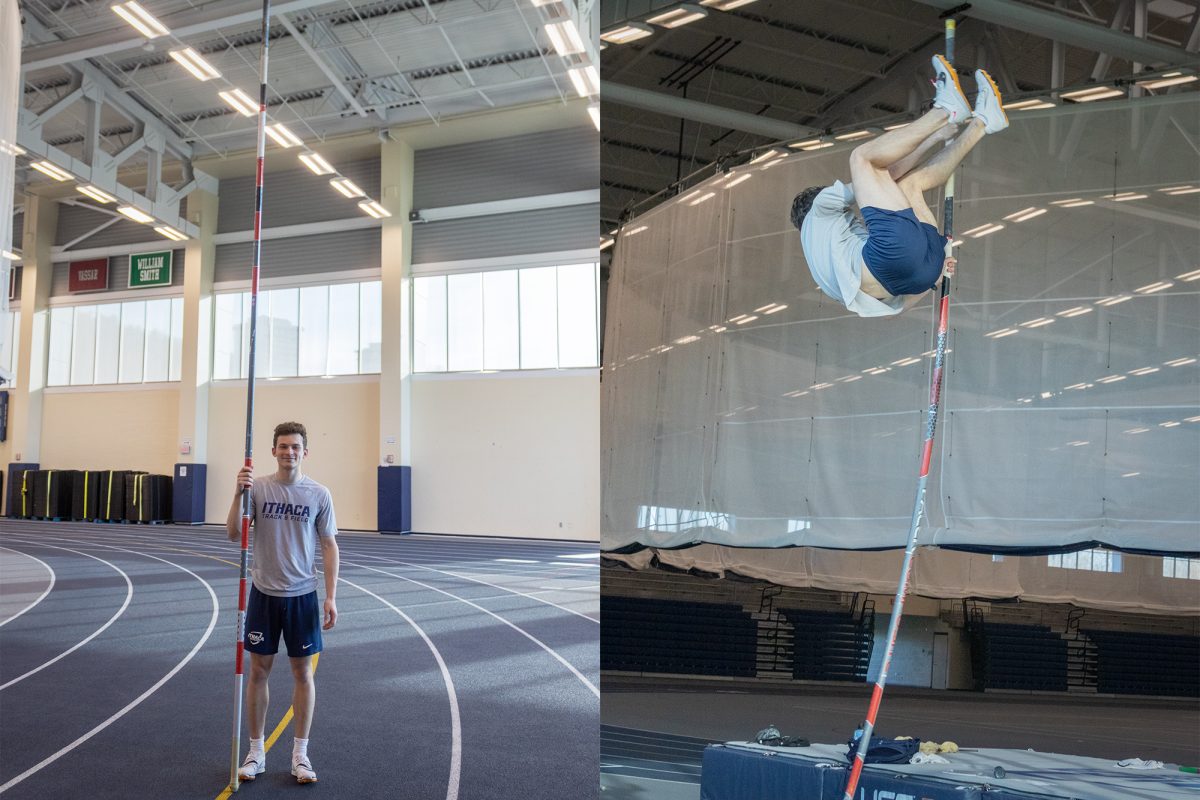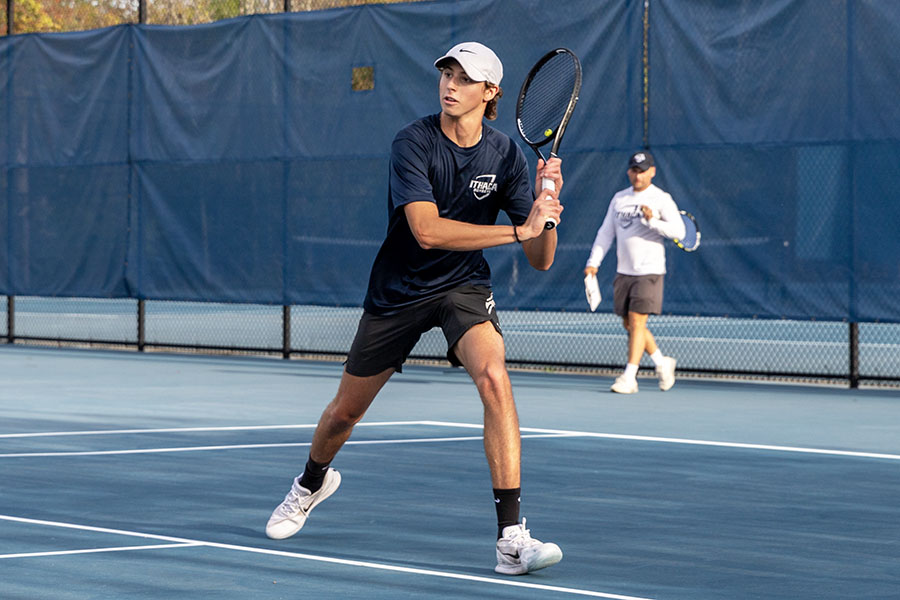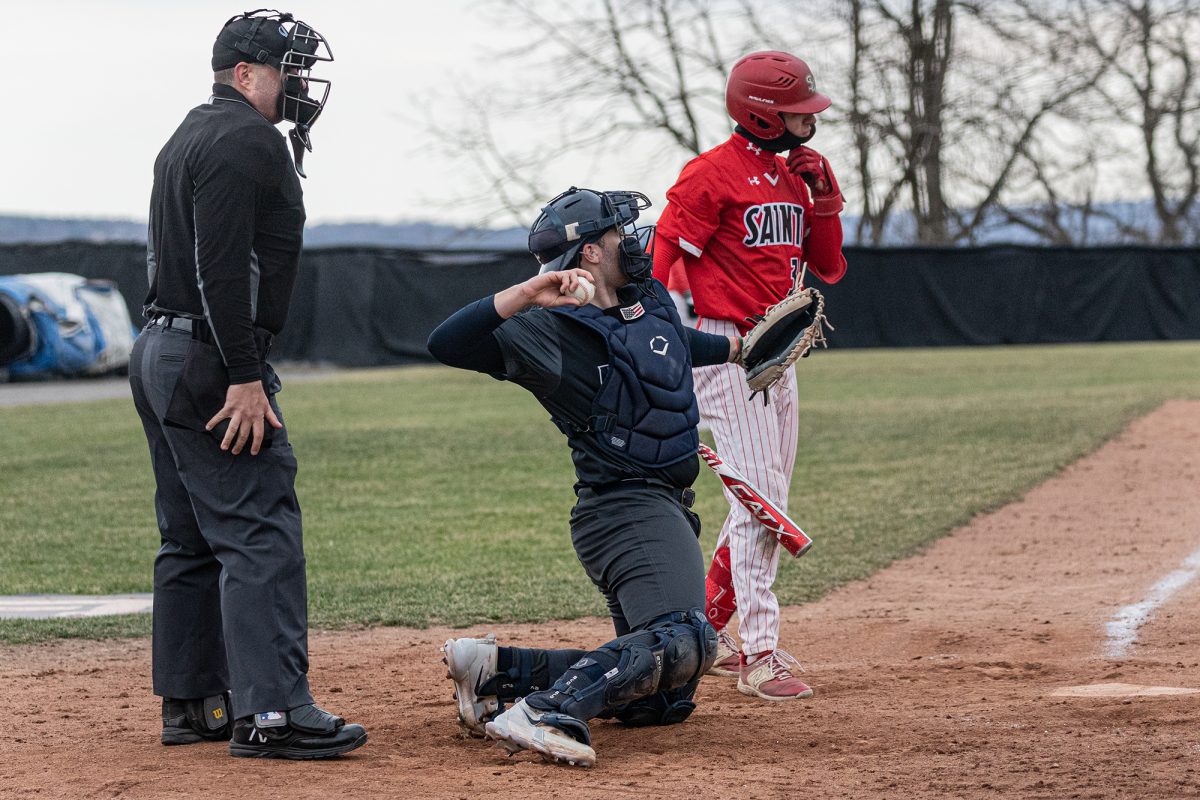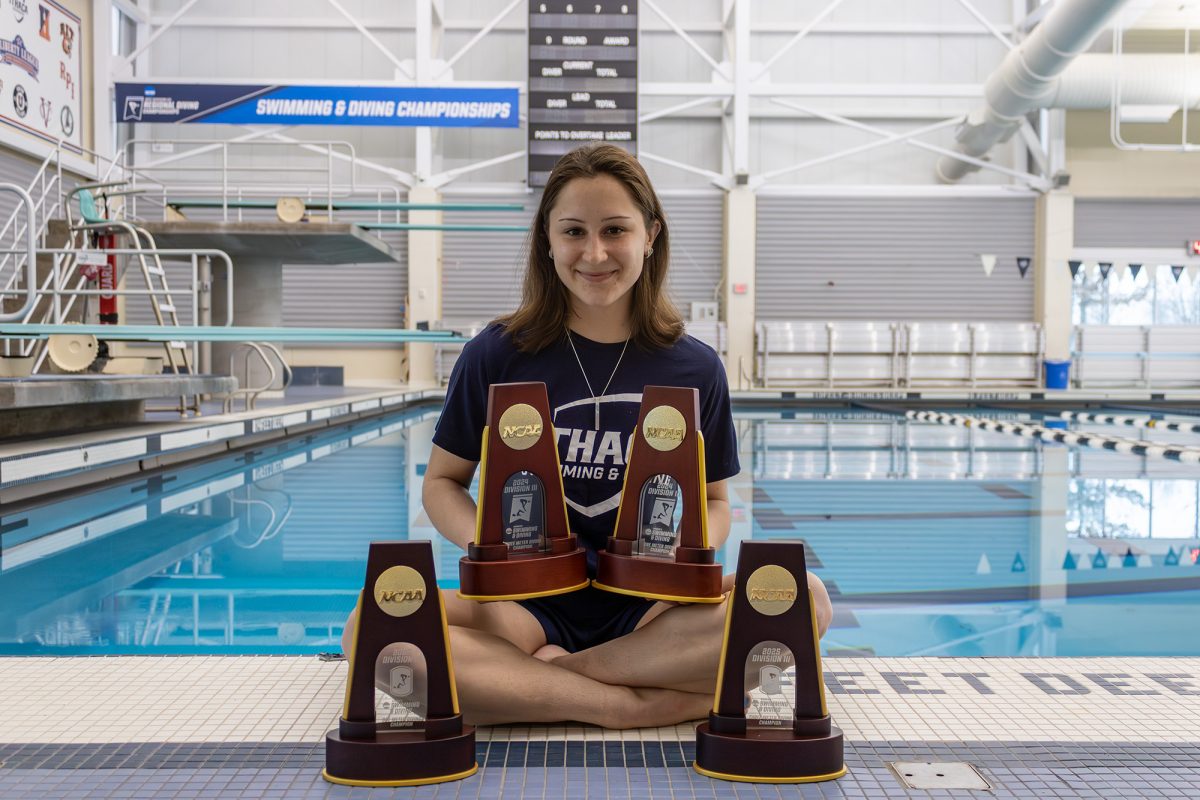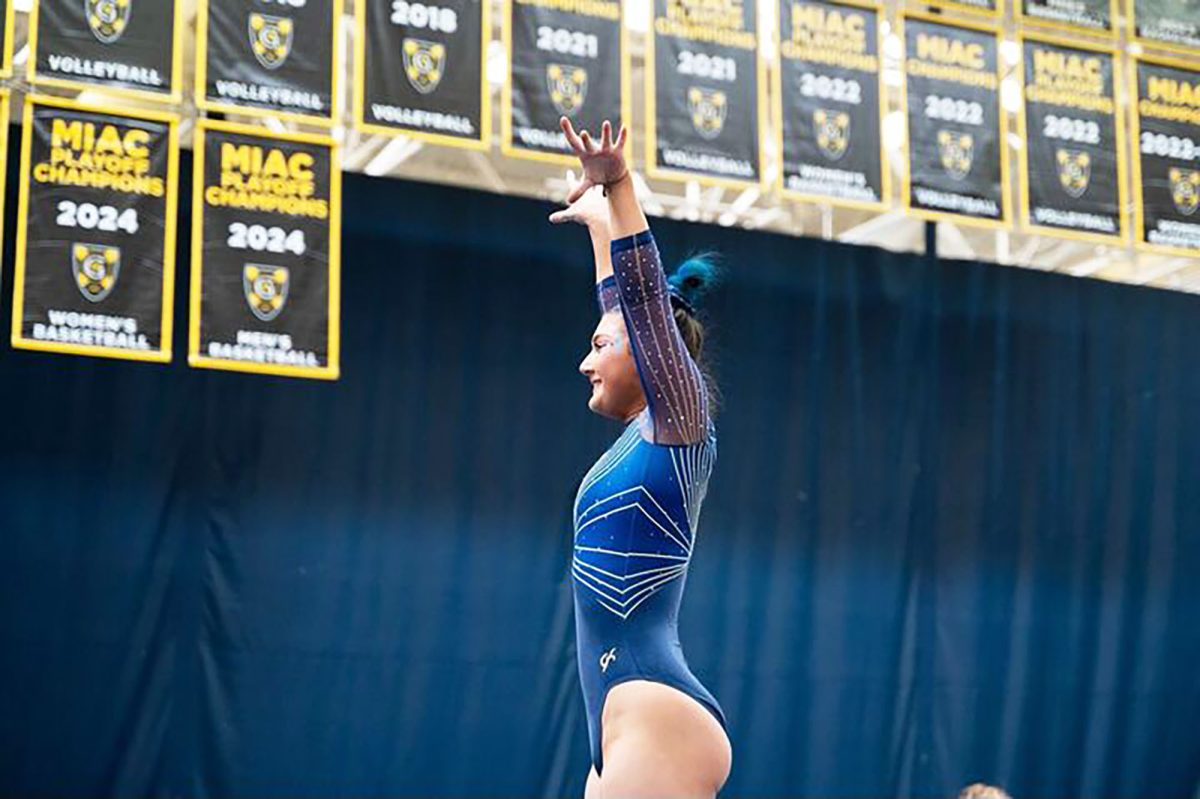Long after finals and the rush of students moving off-campus for the summer died down, members of the Ithaca College golf team opened their Instagrams to a surprise.
The Women’s Golf Coaches Association announced July 16 that the Bombers led Division III golf in academics across the nation with an average GPA of 3.917. The college’s golf program received similar recognition following the 2017-18 season when it led the division with a 3.801 average. No other Liberty League Conference teams were listed in WGCA’s release, which covered the top 25 average GPAs in each division.
All five athletes were named part of the WGCA All-American Scholar Team and four were named to the Liberty League All-Academic Team, which included 161 spring sport student-athletes from IC. Of the seven Bomber teams that announced their Spring 2025 average GPAs, gymnastics came second with an average of 3.745 and ranked third in Division III nationwide.
After seeing the effort put in by the team throughout the season, head coach Keith Batson said while he was proud of the team, it did not come as a shock.
“They are a smart bunch and work very hard,” Batson said via email.
Elizabeth Bleicher, dean of student success, said many coaches at the college see the whole student, not just their athletic performance and work closely with the Academic Support Center to provide their athletes with resources to succeed on and off the field. The ASC is a new initiative combining staff from the dean’s office and the Center for Student Success.
“Our coaching staff really understand the close-knit relationship that we can have,” Bleicher said. “That’s going to really form a net to lift our athletes up here at IC. … It’s long-term and that it seems really healthy and robust.”
Bleicher, as well as ASC associate director Allison Davis, speak with various varsity teams every year. Bleicher said her relationship with the athletics department began when she was asked to speak with incoming football recruits and their families about the college’s Exploratory Program — where she served as director from 2012 to 2019 — and she has gradually become involved with more teams across campus. Bleicher said that in addition to her talks, coaches are proactive in monitoring athletes’ academic performance to ensure they do not fall below the 2.0 GPA required to be eligible for intercollegiate competition.
When it comes to the golf team, Batson said he often talks with the team about their academics.
“Academics are our #1 priority,” Batson said via email. “Our team knows that and they are supported in that.”
One contributing factor to the team’s success was their schedule. The team competes in weekend-long tournaments spanning August to April, but junior Helena Winterberg said most teams in the division will arrive early on Friday when they are not hosting to run through a practice round on the course.
“They’ll miss all of their Friday classes and that can just be a mess,” Winterberg said. “The only time we ever do a practice round is for conference championships. Every other time, we don’t, so we can prioritize getting attendance and going to classes on Fridays.”
While tournaments do not interfere with class schedules, they can monopolize players’ weekends, which junior Abby Bladen said can lead to struggles when working on coursework and group projects. Winterberg said that including meals, the team is typically out of the hotel from 10:30 a.m. to 8 p.m.
“We’ll have six-hour rounds where we have to warm up two hours before,” Winterberg said. “Sometimes we get a chance to sit on the grass for a second while we’re waiting on other people to hit, but once you get out there, you’re straight up playing for five or six hours.”
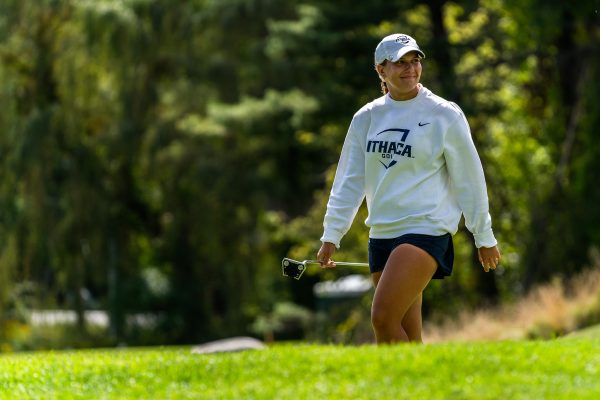
(Courtesy of Ithaca Athletics Creative Media)
Winterberg said once the team gets back to their rooms, they open their laptops and work on homework as they hang out. The small five-person roster allows the players to get to know everyone on the team and what works best for them.
“We’re all always willing to help each other with any work that we have, if we have any questions,” Bladen said. “We’re not always in the same type of classes, based off of our majors. We’re always gonna try and help and if we don’t know, we always know other people that can.”
The players’ support networks extend beyond the team. When she’s on campus, Winterberg said she and her friends regularly use the library’s quiet floor to push each other to get their work done. In addition, Bladen said her professors have been excellent at listening to any issues she may have throughout her time at the college.
“The professors’ relationships with students here is a lot better than you’re gonna get at a lot of other colleges,” Bladen said. “They really care and it’s very easy to be like, ‘I need help with this,’ and they’re going to make time for that.”
When navigating extracurriculars, Bladen said that her classmates have always been willing to accommodate her schedule to finish a group project.
“A lot of the students at Ithaca are very understanding of the fact that you’re an athlete,” Bladen said. “You’re traveling, you’re busy and everyone will do their best to work around it. If I can’t meet up with a group, they’ll text me everything.”
Many students understand because they have extracurricular commitments of their own, whether those be sports, jobs or clubs. IC boasts many resources to help students with their academics, including the Writing Center and the ASC, that can connect students with advisors, success coaches and peer tutors.
Winterberg said her number one tip for other athletes, or any student, is to make the most of their professors’ office hours.
“It sounds stupid, too, because everyone is just like, ‘I’m not gonna go spend more time than I have to,’ but it really is helpful,” Winterberg said.
On top of external resources, Bleicher said an important topic she talks with athletes about is their mindset. She said athletes are particularly open to the kinds of mindsets that lead to academic success.
“What people don’t know … is that you can take the strategies that you use to get success from yourself in athletics and you can apply those to academics,” Bleicher said. “It’s an incredible advantage. What I talk about is how we can tap into what they know about growth mindsets, what they know about visualization and practice, what they know about persistence, what they know about resilience.”
Winterberg said she makes an effort to keep athletics and academics balanced with her personal life.“We kind of all have our own things outside of golf,” Winterberg said. “I feel like it’s really easy, at Ithaca, to have little niche things you’re involved in, whether you’re in broadcasting or whatever clubs you’re in. We all prioritize having that outside of golf as well and kind of keep each other accountable.”




